Kodak Petite
Eastman Kodak Company
| Name: | Kodak Petite |
| Manufacturer: | Eastman Kodak Co. |
| Country of Origin: | USA |
| Construction: | Conventional folding bed camera for 127 film, based
upon the Vest Pocket Kodak Model B, but in various colours. The
complete folding section, including the bed, is formed as a single
piece that then fits into the rollfilm back. The two have to be
separated to load and remove the film. Special versions were also produced with enamelled faceplates, with some particular variants being produced in limited numbers. |
| Plate / Film Size: | 127 rollfilm |
| Lens: | Meniscus |
| Shutter: | V.P. Rotary |
| Movements: | None |
| Dimensions (w x h x l): | |
| Production Period: | 1929 - 1934 |
The Kodak Petite was a coloured variant of the Vest Pocket Kodak Model B that was introduced in 1929 with marketing aimed primarily to appeal to women due to its stylish appearance.
The basic Kodak Petite was produced in 5 colours: blue, gray, green, lavender and old rose. The body featured a diamond pattern to the covering that was repeated on a matching case and bellows in a contrasting colour.
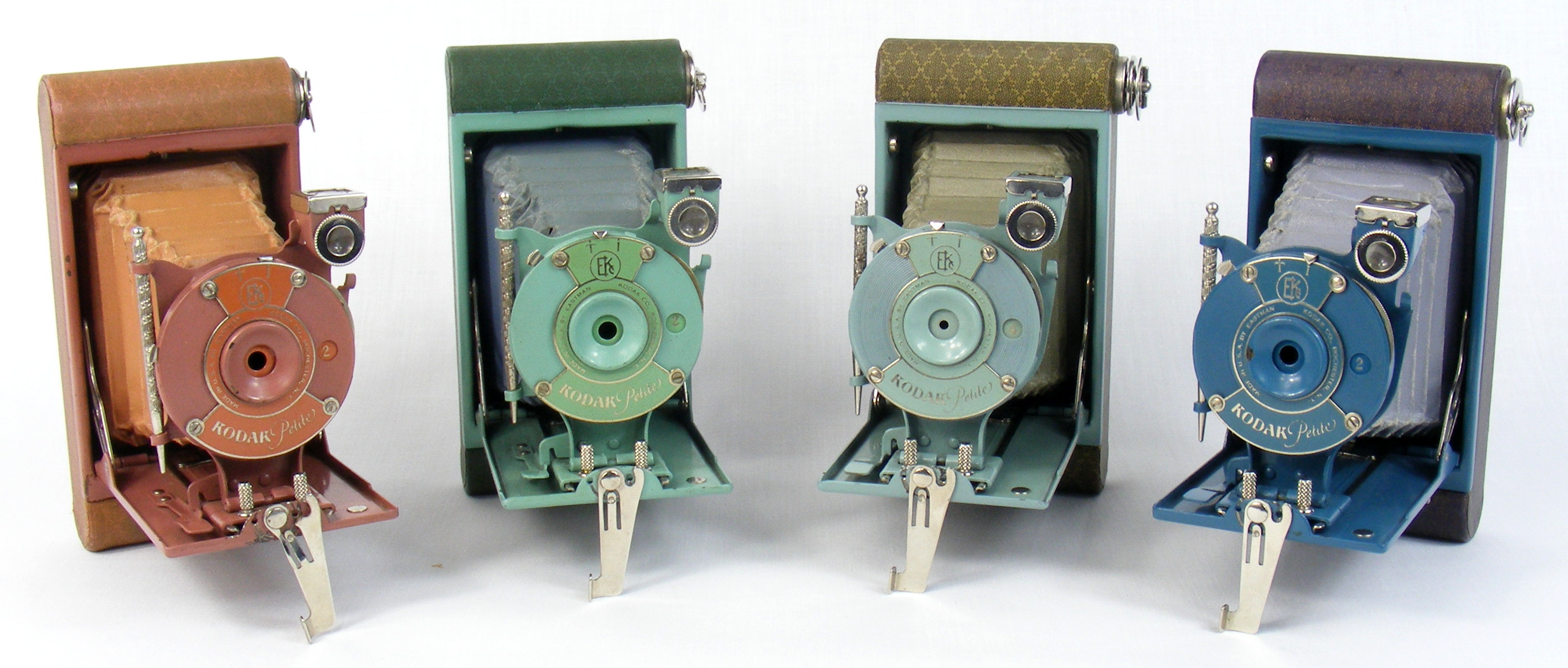
A series was also produced with a step pattern on the faceplate, again in 5 colours. A lightning bolt pattern was introduced, primarily for sale as part of a boxed set that included a matching lipstick and compact and sold as the Coquette. The camera was also sold separately.
Other enamelled faceplate designs are also found including a diamond pattern, but these are far less common.
Refer to the Notes section at the foot of this page for further comments about colours.
| Model / Variant: | Gray |
| Date of this Example: | |
| Serial Number: | Pencil number '39' written on inside face of body. No serial number. |
| Availability: |
|
| Inventory Number: | 100 |
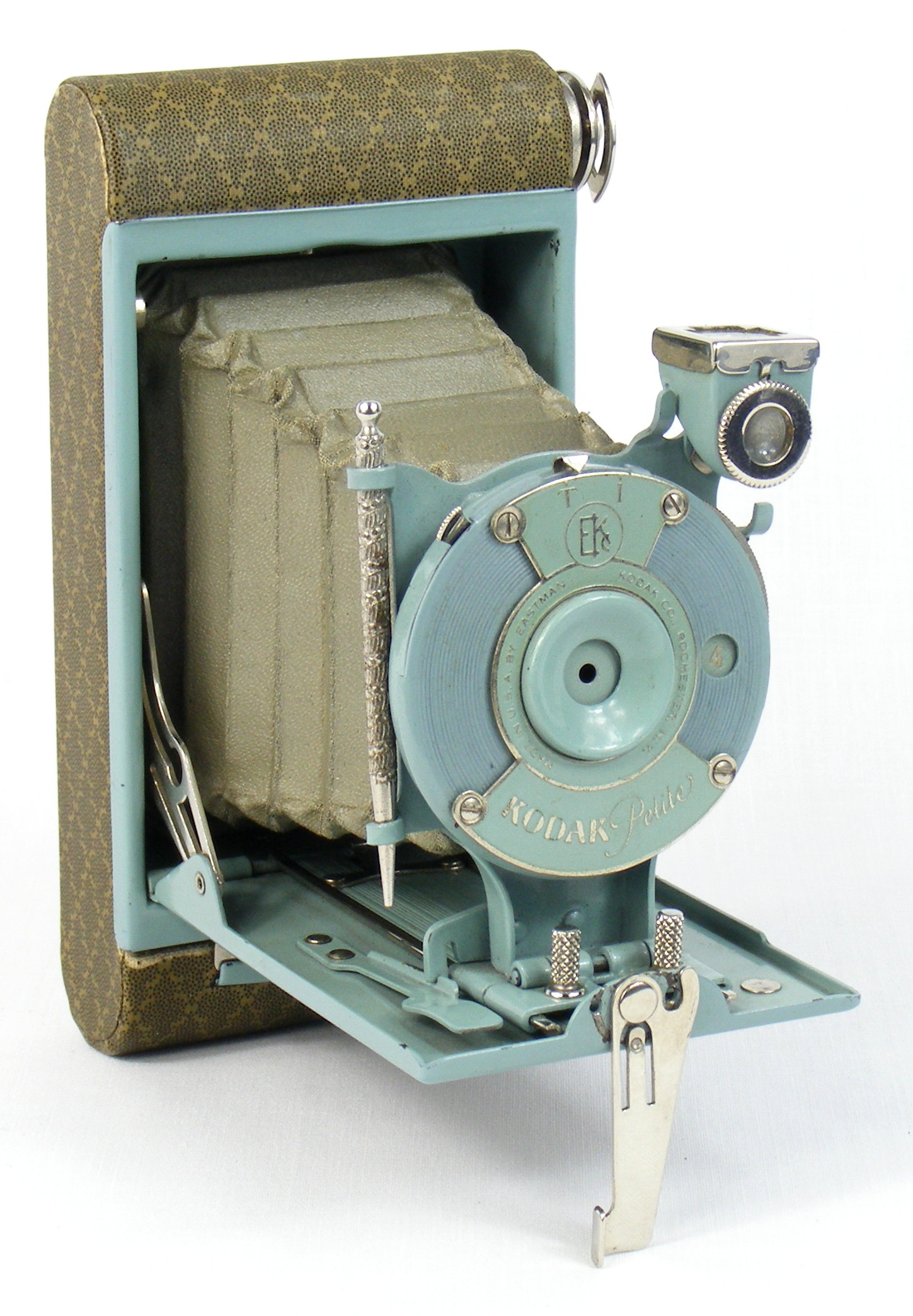
Description
Gray Kodak Petite in very good condition with original bellows. Grey diamond pattern (or more strictly, "Gray"), with blue/green metalwork and original silvery green bellows.
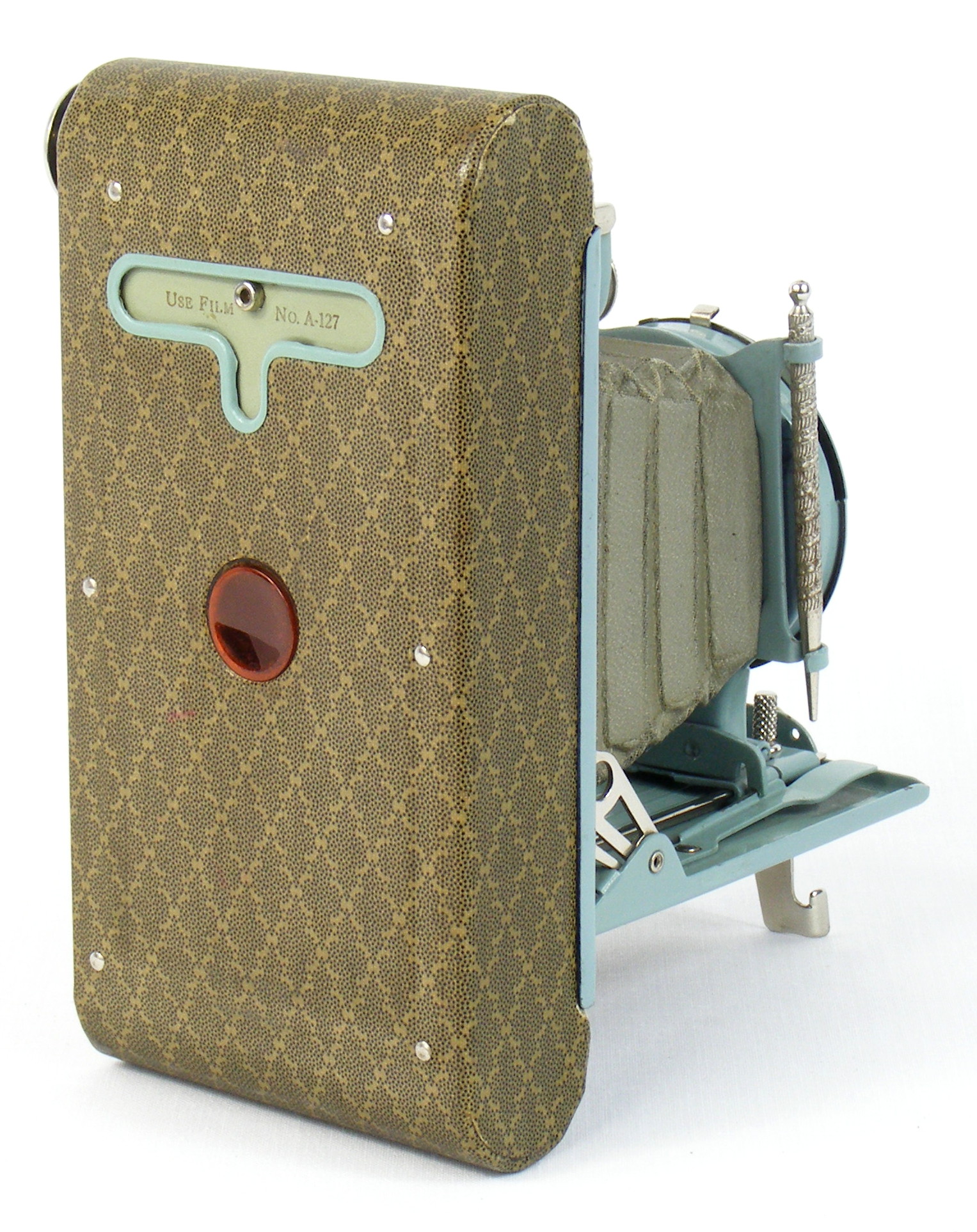
This example of the Kodak Petite is in good condition, with only minor chipping to the paintwork. It is also complete with the original matching case, showing some wear on flap and at corners, but otherwise quite clean.
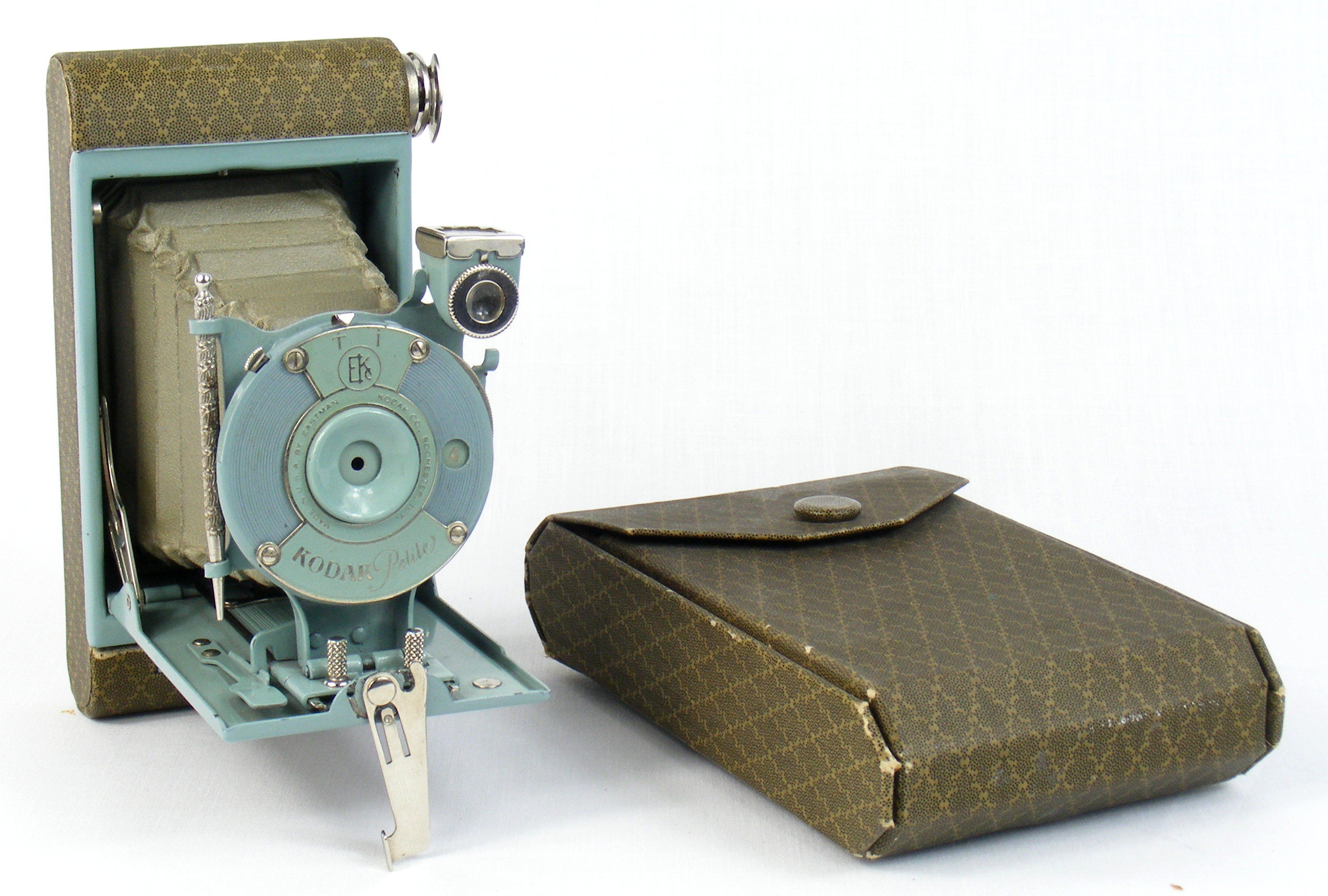
~ # ~ # ~
| Model / Variant: | Blue |
| Date of this Example: | c1929 |
| Serial Number: | Pencil number '84' written on inside face of body. No serial number. |
| Availability: |
|
| Inventory Number: | 249 |
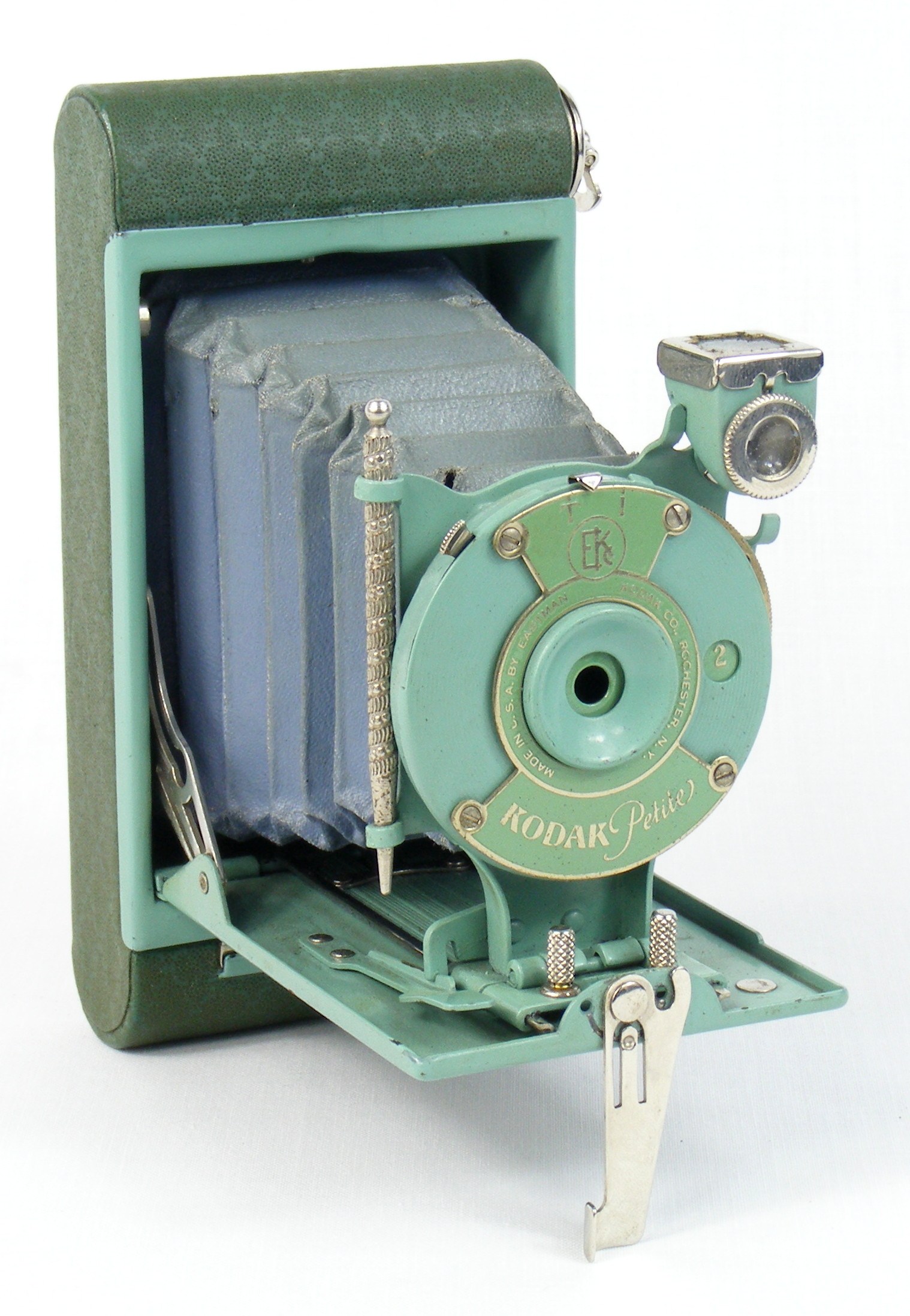
Description
Blue Kodak Petite in very good condition with original bellows, although these are dry and getting bear on some of the corners. Green diamond pattern with blue / green contrasting metalwork and silvery blue bellows. If you are surprised that this example is categorised as "Blue", given that there is a strong green component to the body colours, refer to the Notes at the foot of the page for further comments about colours.
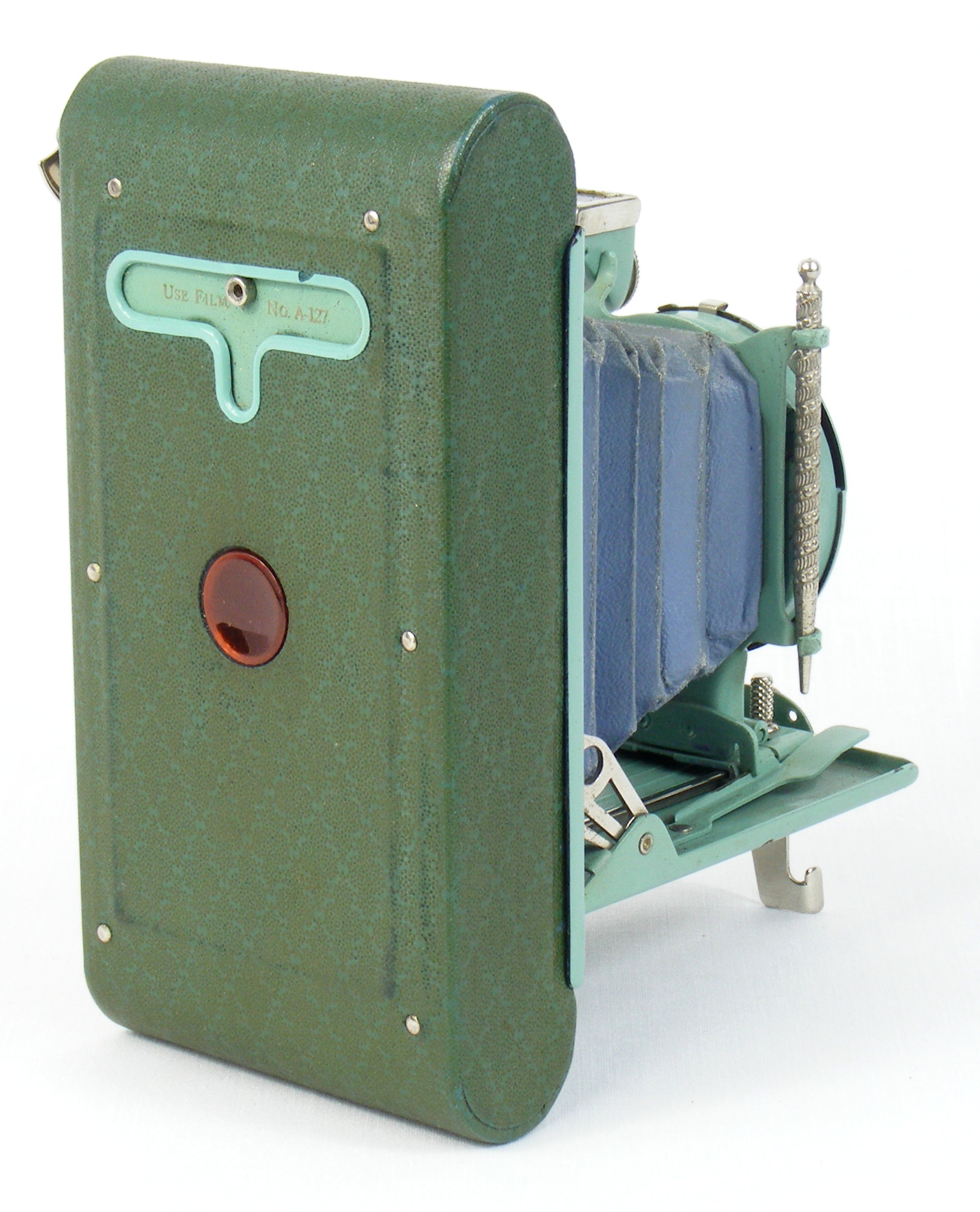
The camera came with an original sales carton in a diamond pattern (green & blue), which shows wear on the edges and at the corners, but is otherwise clean. It is marked on the back as 'BLUE'. Note that this box is smaller than #108, designed to hold just the camera without a case.
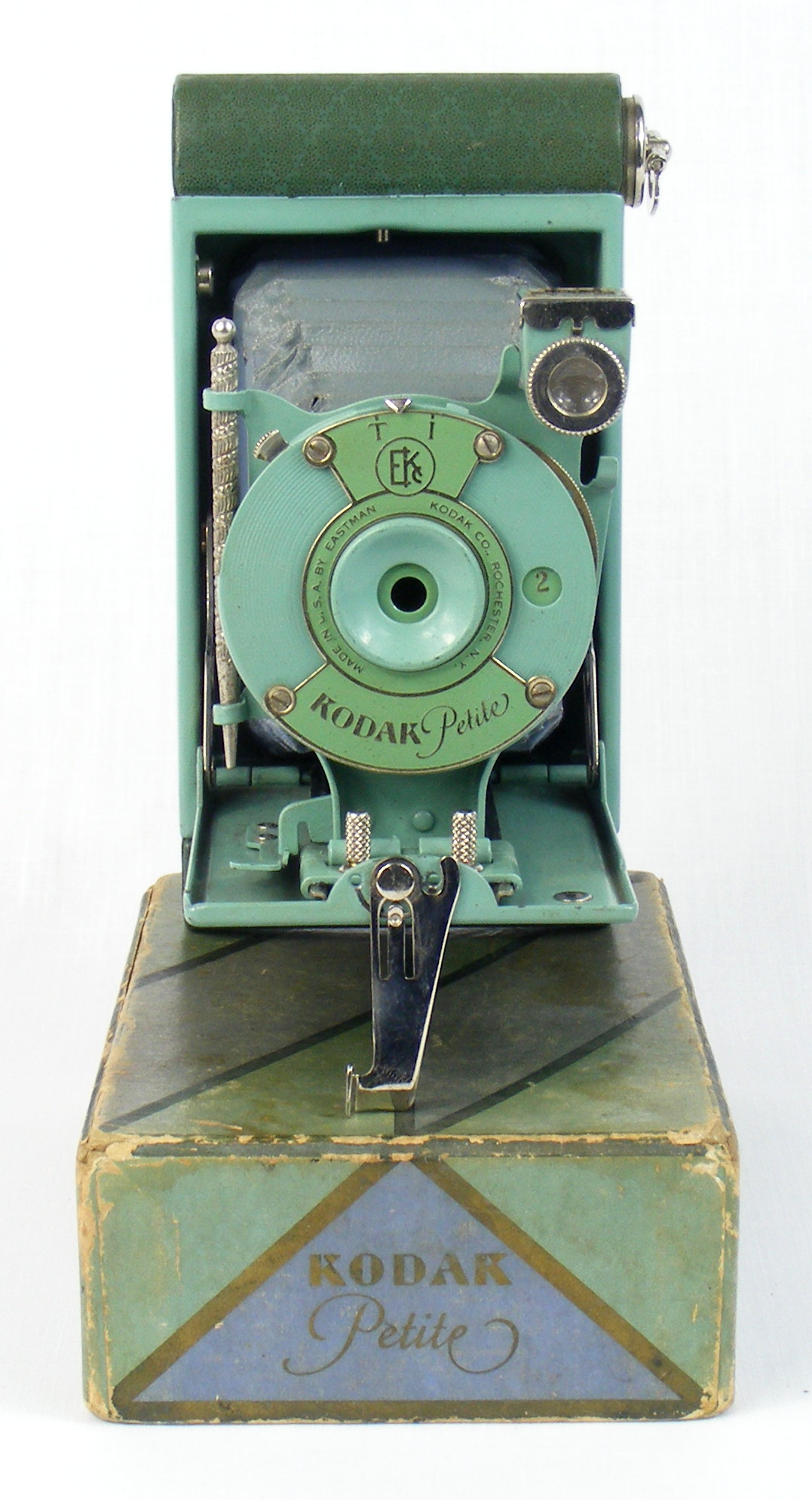
The camera also has its original instruction booklet, which is in excellent order with only minor discolouration on the cover and no evidence of use. The instruction booklet was wrapped in patterned transluscent paper within the box.
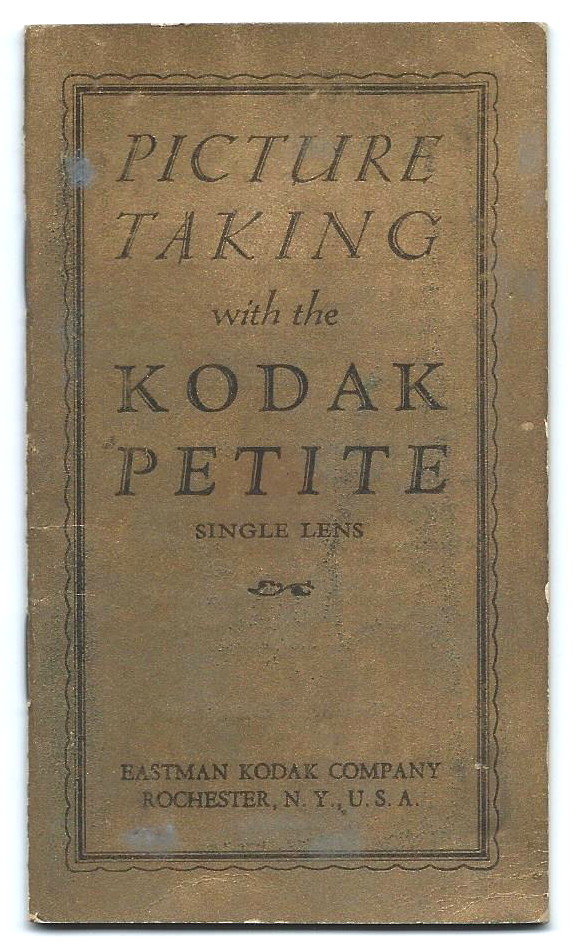
A card within the box provides a "Caution" notice to the seller about window display. I presume this should have been removed prior to sale. Interestingly it sat on top of the instruction booklet, and it is conceivable that the booklet had never been removed from the box by the original buyer.
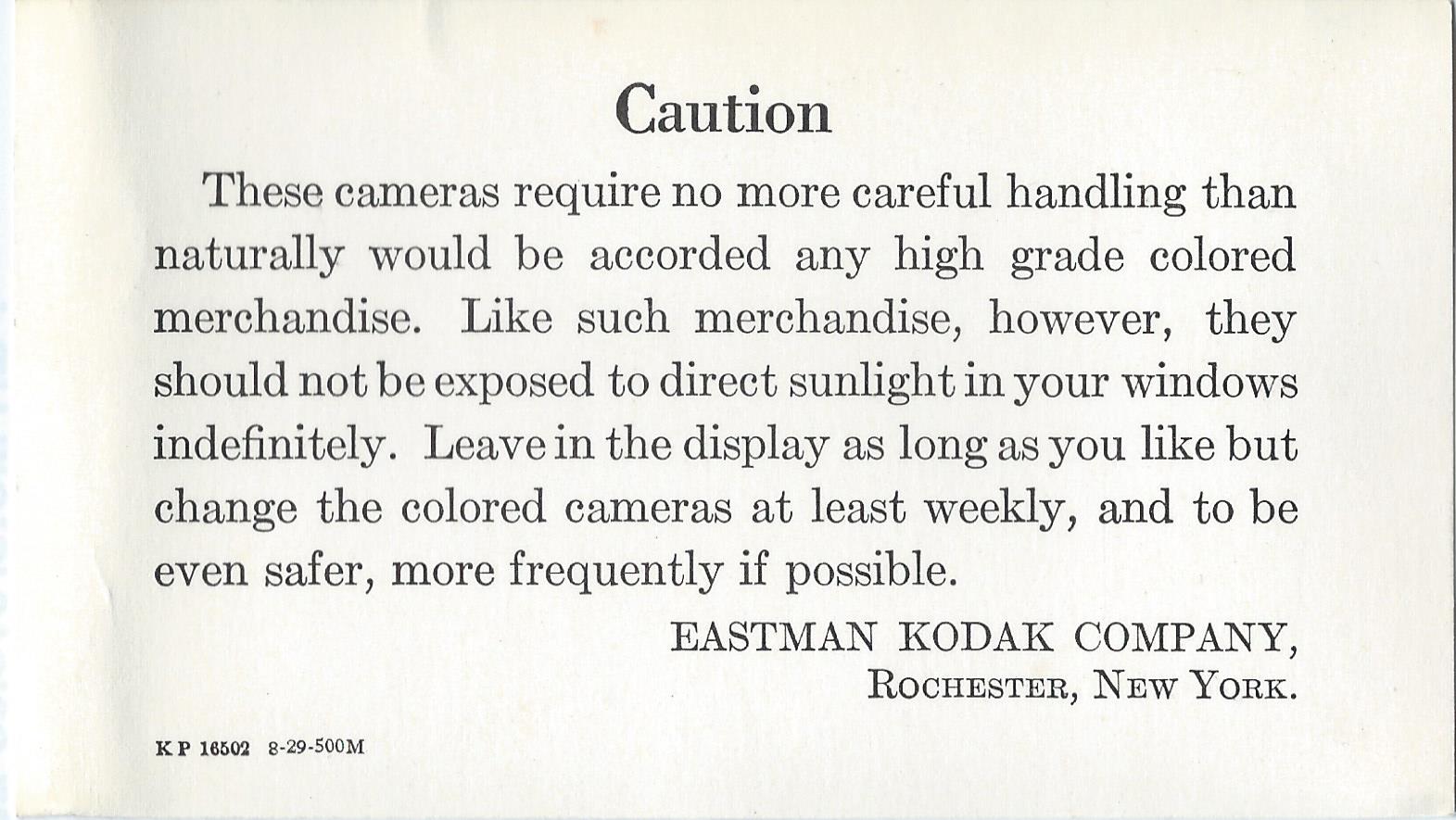
~ # ~ # ~
| Model / Variant: | Lavender |
| Date of this Example: | |
| Serial Number: | Pencil number '89' (or maybe 84) written inside the camera. |
| Availability: |
|
| Inventory Number: | 108 |
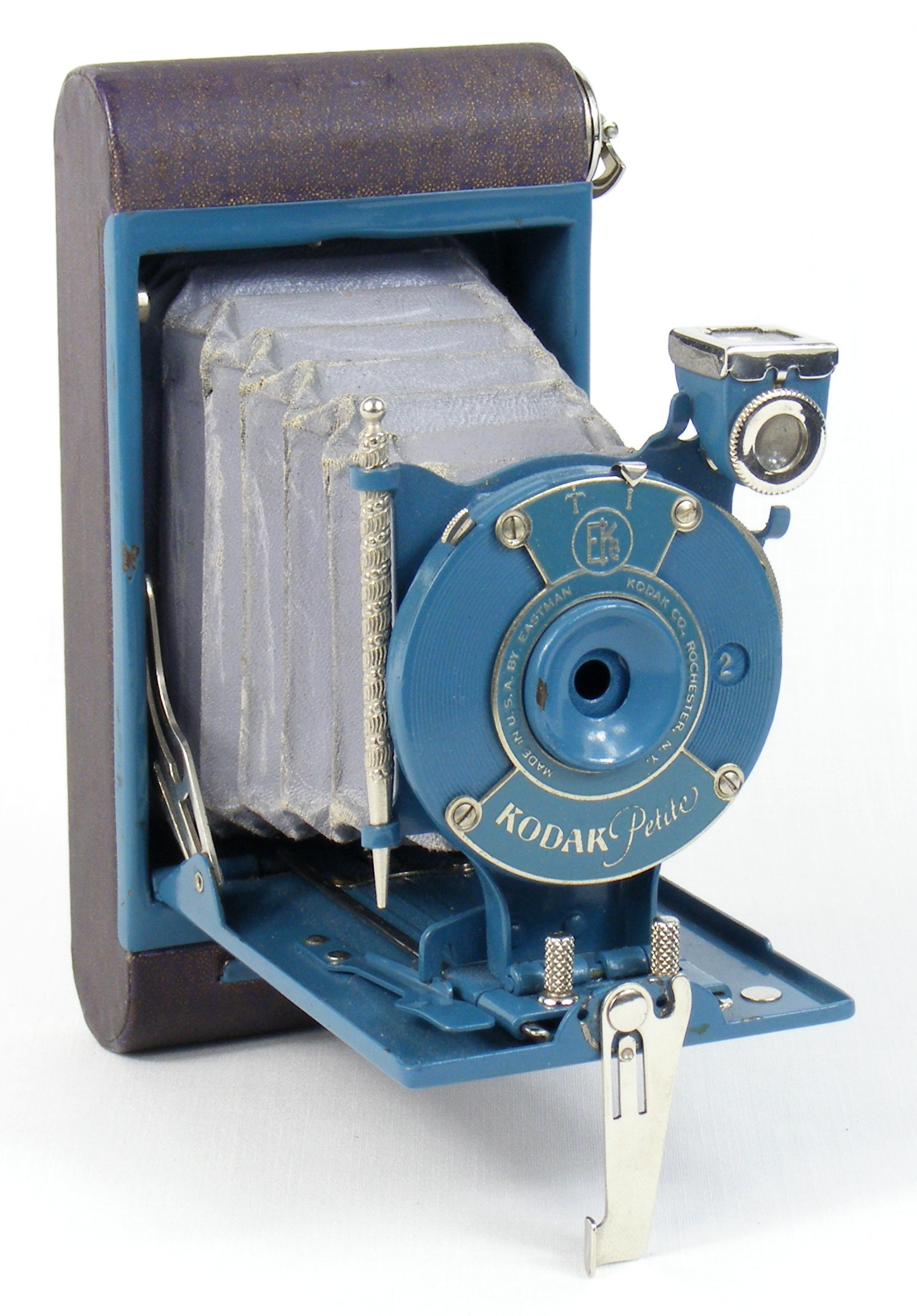
Description
This example of the Lavender Kodak Petite is in very good condition, with original matching case and sales carton. Purple body in the diamond pattern with blue metalwork and original lavender coloured bellows.
There is a little wear (rubbing) along the top & bottom edges but is otherwise in very good order. There is minimal marking to the paintwork, which still has a lovely strong blue colour, although there are several small chips. The autographic stylus is still present.
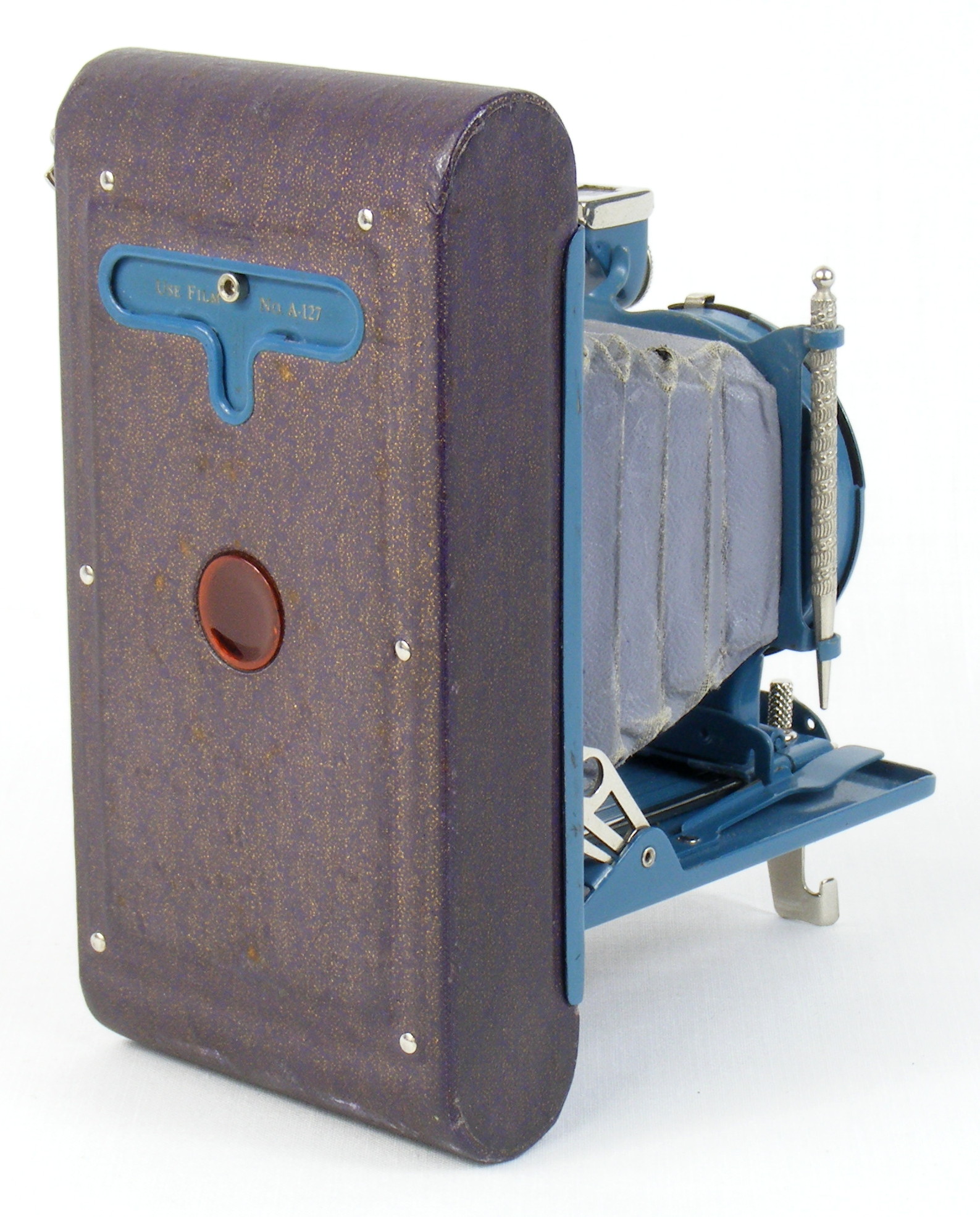
The camera retains its original matching case and sales carton. The case is in good condition. The carton is worn & faded, with a lot of edge wear. Note that the box is larger than that with #249 as it is sized to incorporate the case rather than the camera alone.
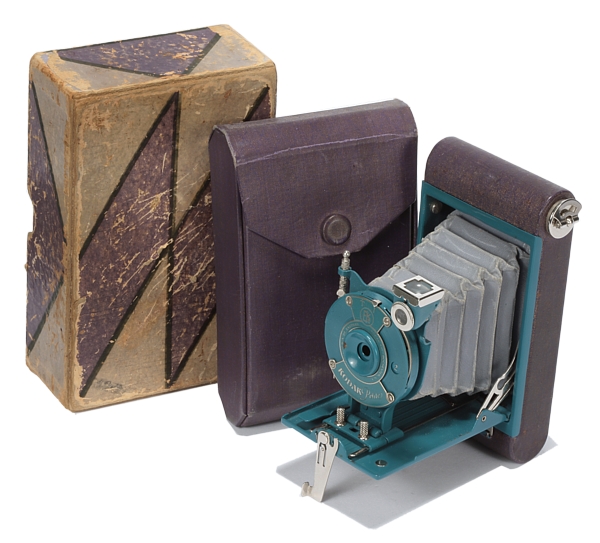
(Image © Amateur Photographer 2011, taken for an article by Ivor Matanle and reproduced with kind permission)
~ # ~ # ~
| Model / Variant: | Old Rose |
| Date of this Example: | |
| Serial Number: | None |
| Availability: |
|
| Inventory Number: | 569 |
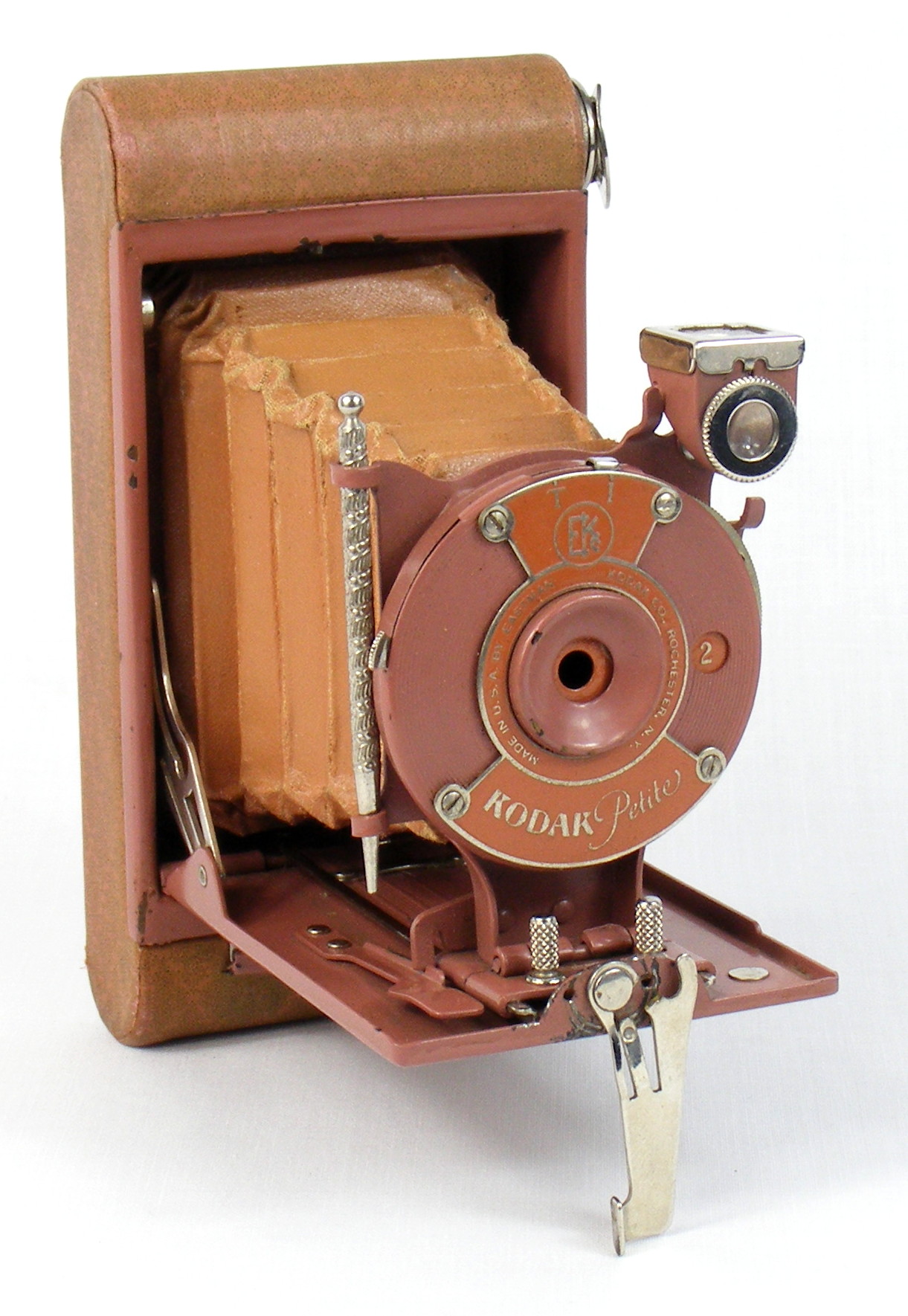
Description
Old Rose Kodak Petite finished in good condition, with original sales carton.
This is a less common colour of the Kodak Petite camera, which has the diamond pattern and old rose coloured metalwork. The diamond pattern is indistinct on the front face, but is quite clear on the back. The edges are a little grubby through handling. The autographic stylus is missing.
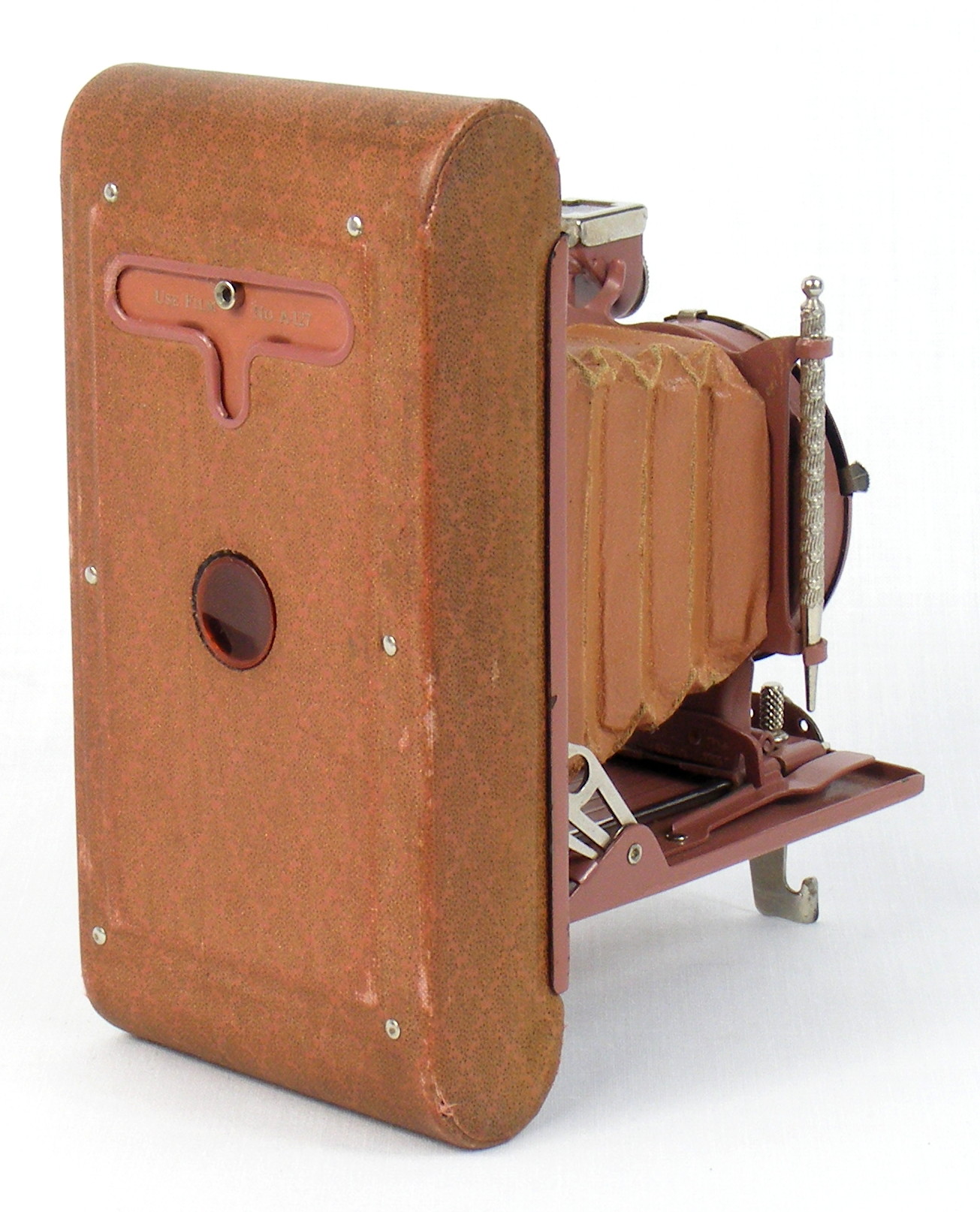
The original sales carton is in fair condition, but has some corner and edge wear as well as some staining to the top face. It is finished in gold inside (as is the instruction booklet, sadly missing from this example). The case is also missing - the carton is of the larger size that was used to supply both camera and matching case.
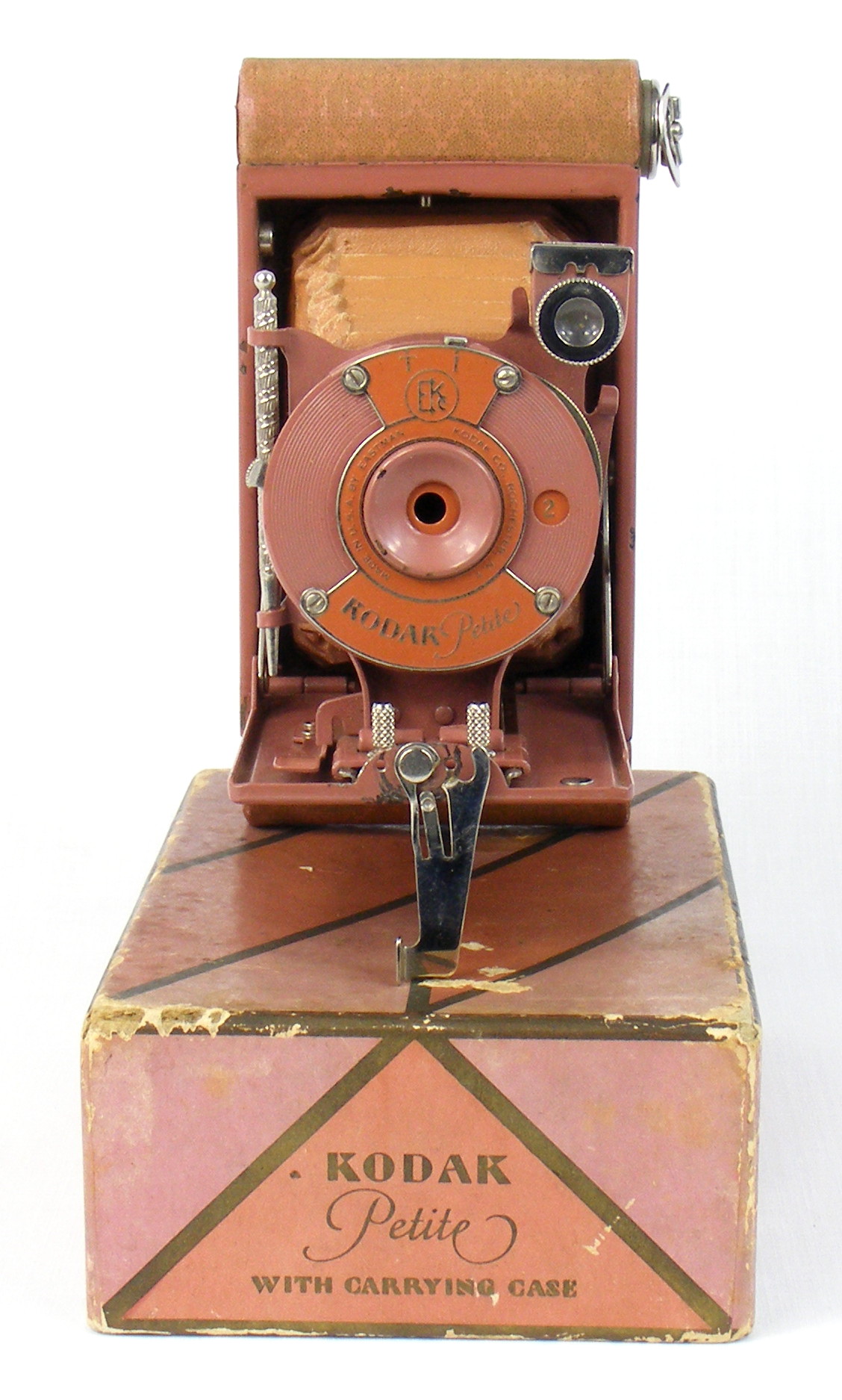
There are some chips and scrapes to the metalwork, most noticeable at the point where the stand has marked the metal when it is rotated to lock the front in place when folded. There are also a couple of minor blemishes to the raised ring around the edge of the lens, as is quite common with these cameras.
~ # ~ # ~
| Model / Variant: | Step pattern in lavender |
| Date of this Example: | |
| Serial Number: | None. |
| Availability: |
|
| Inventory Number: | 473 |
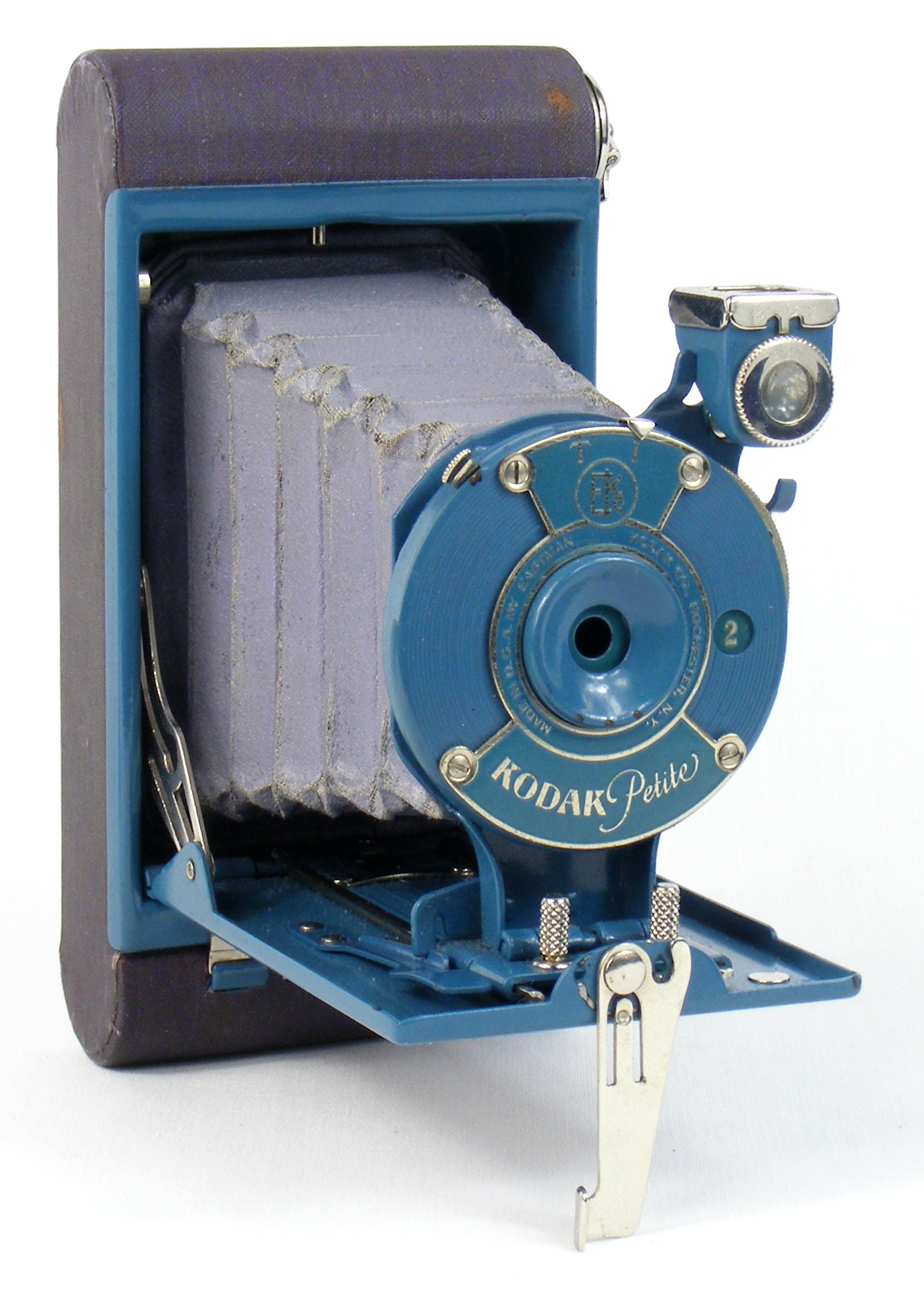
Description
This example of the Kodak Petite in Lavender has the step pattern enamel front plate and is in very good condition with original bellows. The step pattern is picked out in lavender and silver. The photo below shows the enamel front panel on this camera, alongside the conventional plain Peitite in Lavender (#108) for comparison.
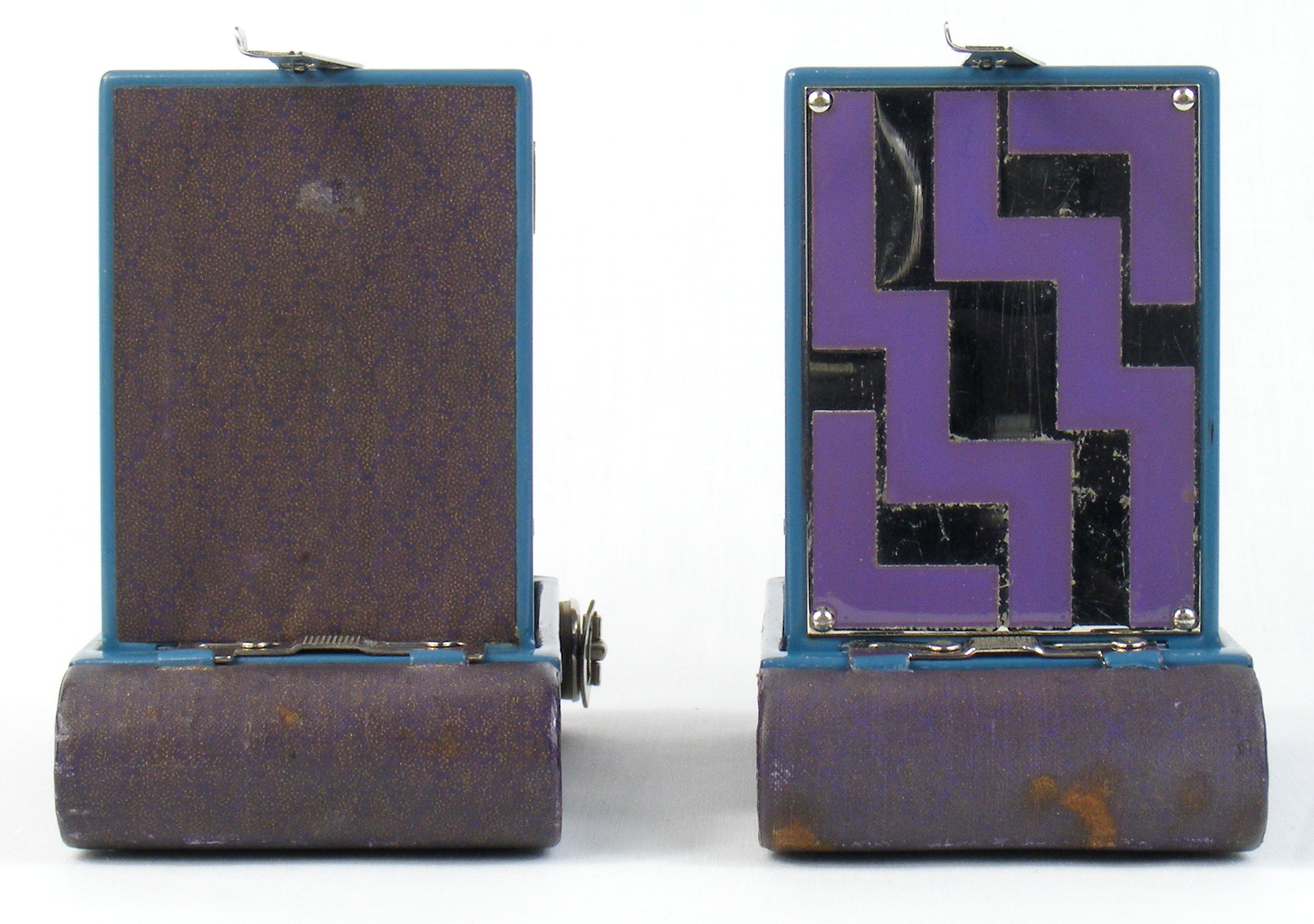
There are some minor scratches and wear to the chrome elements on the step pattern, but generally it is in very good condition. The bellows are original, but show signs of thinning and wear that is so typical of these cameras. The other metal elements are finished in blue. Note that with this example, the cloth covering on the body is plain with no diamond pattern (compare it with #108 above), and is the only example in the group that is non-autographic.
The camera bodywork, espoecially the back, has orange patches that I suspect is colour that has bled through from the lining of the matching case.
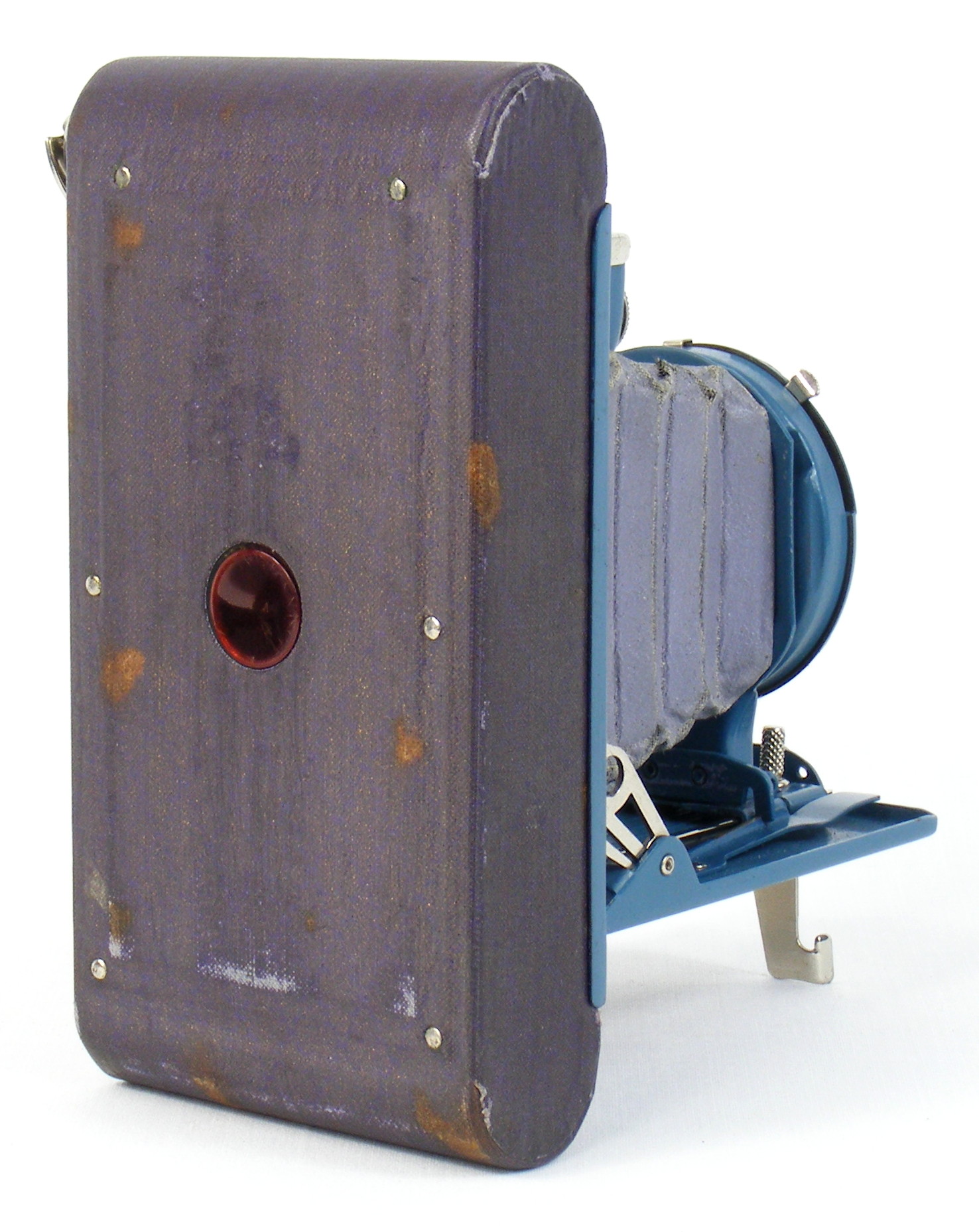
The camera retains its original matching case, which is in good condition. It has the original owners name in gold across the front.
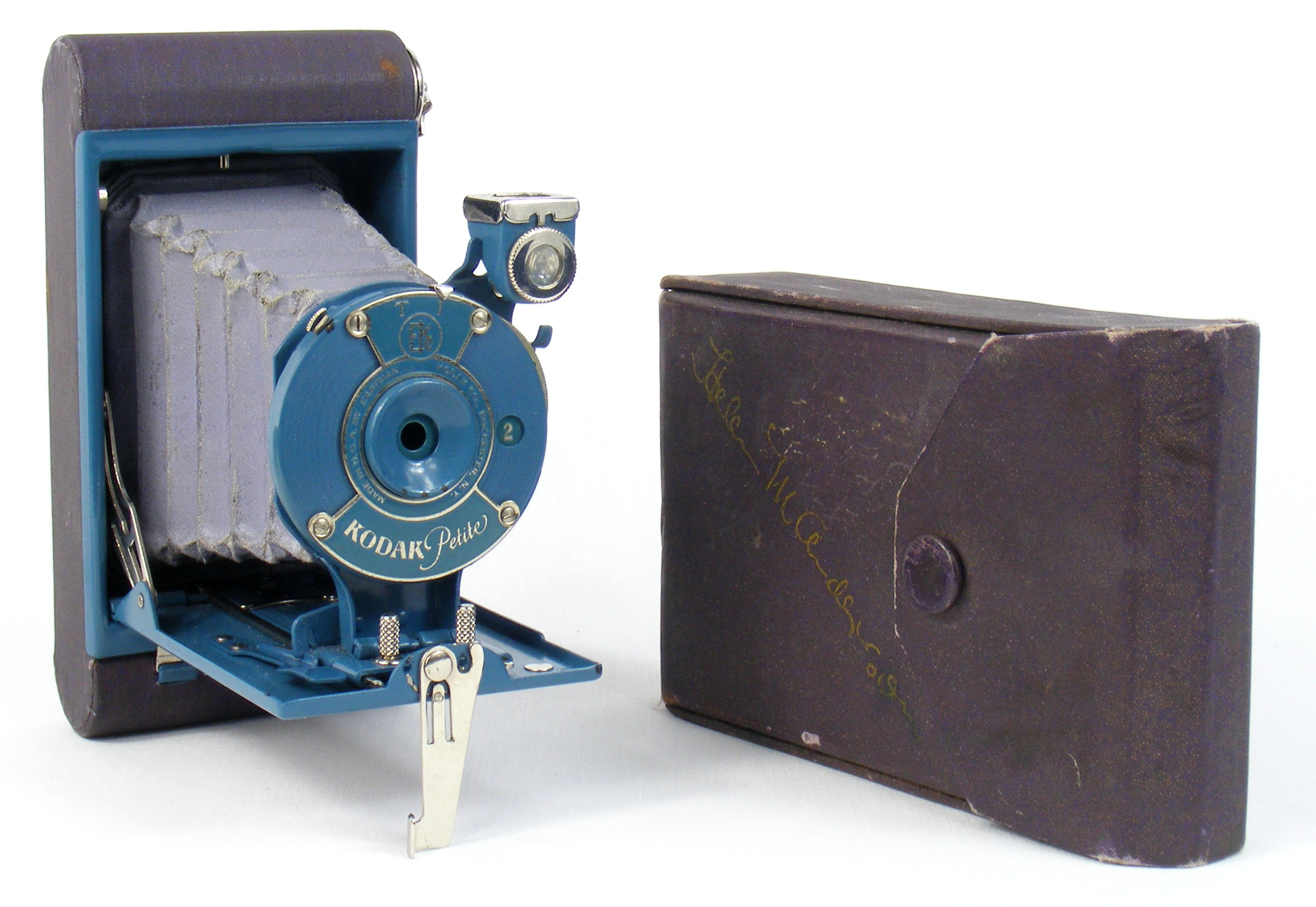
Notes
There are some challenges in identifying the correct colour attribution to apply to each of the cameras that were made available at launch in 1929. Judging by the results of an internet search, I am not alone in finding this a little confusing!
|
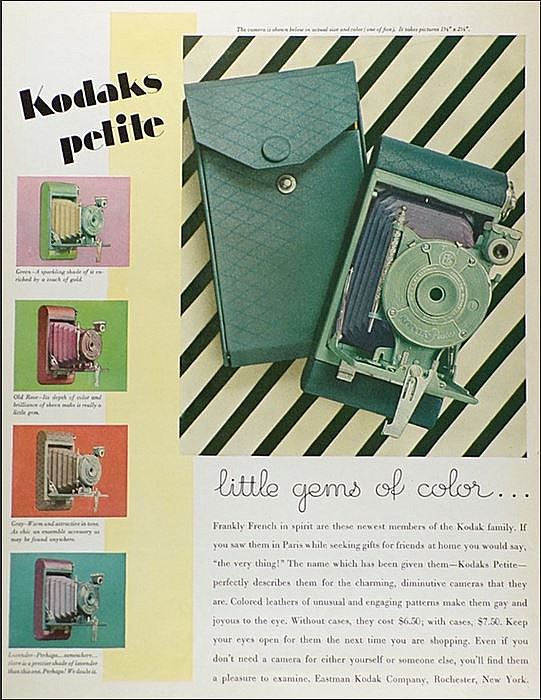 |
|
 |
The adjacent advert for the Kodak Petite range is dated 1929, the year they were introduced. It shows the five distinct colours. From top left to bottom is the Green, Old Rose, Gray and Lavender and therefore the main picture is the Blue variant. All have the diamond pattern in the fabric covering the main body. My own collection includes all but the Green variant, as shown on this page. The use of contrasting colours for the body covering, the metal edging and the bellows means that it is not altogether obvious when looking at a camera in isolation as to what member of the range to attribute to it. I think this is particularly true of the Blue, given that the majority of the camera actually looks more green than blue! A key identifying feature on these early models is the colour of the original bellows, provided they have not been replaced later. It is apparent that different colour schemes were used over the production period. An internet search will quickly reveal other colour combinations that don't match these early models. It also seems that the artwork used for the outer sales cartons also changed. |
I am searching for other later advertisements or documentation that might give further insight into the different colour combinations that appeared over time, albeit still categorised by these same five basic colour labels. The Petite is pictured in Kodak catalogues for 1930, 1931, and 1932-33, and all have the diamond patterned fabric. No mention is made in the catalogues of the later Petite with the step pattern fronts. The catalogues also do not mention the "Kodak Ensemble" that consisted of a Petite camera in beige, green or old rose along with similarly coloured lipstick, compact, mirror and change pocket in a suede case. Nor do the much more difficult to find "lighting-bolt" variants in blue or green appear that were issued as part of the "Coquette" boxed sets with matching lipstick and powder compact, although these cameras may also have been sold separately. The Coquette and Ensemble outfits are hard to find and generally command a high price as a consequence, even if incomplete as is often the case.
When looking for a good example, check the condition of the bellows carefully. Many were replaced with the stronger but less attractive black bellows. Also check the condition of the enamelled metal edge work as this can often chip and will then rust, which can reduce its value and detract from its quality as a display item.
![[ ]](../../images/unchecked.png)
![[x]](../../images/checked.png)